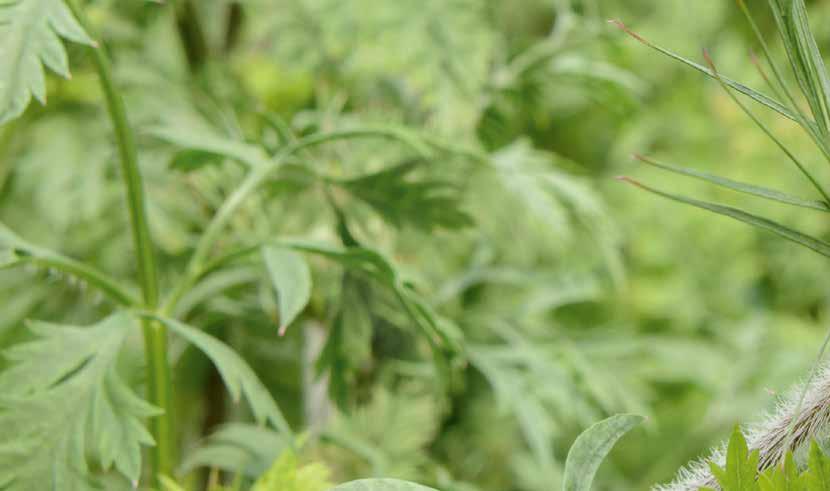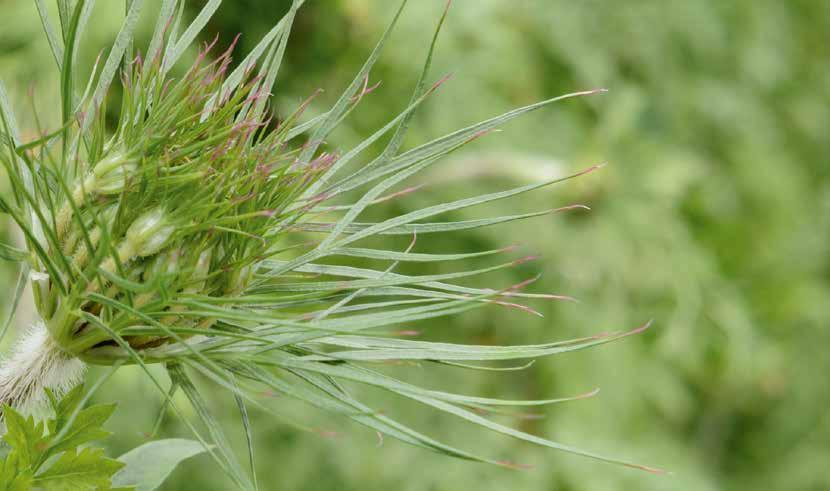
4 minute read
ORGANIC PRODUCTION WILL HAVE TO GROW EXPONENTIALLY
NEW EU DIRECTIVE TO SET DEADLINE FOR NCT SEED
ORGANIC PRODUCTION WILL HAVE TO GROW EXPONENTIALLY
SEED CULTIVATION IS A SPECIAL ART, CERTAINLY WHEN THE PLANTS ARE PROPAGATED ORGANICALLY. IN THE YEARS TO COME, PRODUCTION CAPACITY WILL HAVE TO EXPAND SIGNIFICANTLY.
Vegetables are only truly organic if they’re grown from organically produced seed. At least, that’s a basic principle of the EU’s directive on organic agriculture. In many cases, however, derogations can be obtained to use non-chemically treated conventional seed. For crops including red beet, carrots, brassicas and leafy vegetables, growers and their chain partners can still choose between NCT and organically produced seed. These exemptions are set to end, however, possibly from 2036. The date is not yet certain; a new EU regulation is expected in 2022. Seed production is perhaps the greatest challenge facing the sector. 2036 is just around the corner, according to Wil Jorink, Trial Grounds and Seed Production Specialist at Bejo. “It takes at least five years to set up a new cultivation site.”
Bejo has been producing organic seeds since the 1990s. International Production Advisor Gerrit Goudsblom has been involved since the beginning. He and Jorink, who joined the company in 2010, know as well as anyone what it takes to produce high-quality seed. “Most crops are biennial,” Goudsblom says. “They have to survive the winter in good health to be able to flower and form seed in the second year. That places exceptional demands on the grower and the area. The climate is important. The winters can’t be too harsh, but you need enough of a temperature difference for the crop to sprout, and then the right weather conditions for flowering and pollination.”
Residue limits
Disease pressure and weeds also affect an organic seed crop’s chances of success. “Insects are the biggest enemy,” Goudsblom says. “An aphid or lygus infestation can completely destroy a seed crop.” (See box.) Producers also need to consider the surroundings, since unplanned crosspollination must of course be avoided. They must also pay attention to pesticide residues. Organic seeds are strictly controlled, and permitted levels are extremely low. The soil and overall environment must be clean. A neighbour spraying a field can be disastrous. Even using natural substances is tricky, Goudsblom says. “We have to be very careful about what we use, because the guidelines for organic production aren’t the same everywhere.“
Bejo seeks new sites and seed growers
Bejo’s seed production takes place in various countries around the world. In Europe, they include the Netherlands, Germany and France. The United States and Australia are also important growing areas. Production takes place partly at our own sites and partly at external growers’ locations. Bejo is constantly looking for new sites and farms with greenhouses or production fields suitable for seed growing. “Producing organic seed is a high-value type of cultivation,” Goudsblom says. “It has to suit you. It can be quite risky. On the other hand, the financial yields can be higher.”
Exponential growth
Bejo offers a broad assortment of organically produced seed for more than 35 crops. “We’re working towards offering organic seed for a variety in every category.” If derogations end, the industry will have to increase the supply exponentially.

Producing organic seed costs more than producing NCT seed. It also takes effort to achieve satisfactory quality. “We’re going to have to have a discussion in the industry about seed quality standards,” Jorink says. “What’s acceptable, what’s realistic, and where do we want to go? For example, we can produce carrot seed organically now, but the germination capacity that growers are used to from conventionally produced seed is too ambitious at the moment. A slightly lower standard is attainable, however. So growers can still achieve a good per-hectare yield with a somewhat higher sowing density.”
Goudsblom says, “You’ve got to start somewhere. And that encourages businesses to invest. Competition in the market will drive improvements. At Bejo we’re up for the challenge.”
NATURAL INSECT CONTROL
Production researchers are focusing a lot lately on natural methods of controlling insect pests, says International Seed Production Research Manager Youri Draaijer. Along with weeds, insects pose the greatest challenge in seed cultivation. Lygus bugs, for example, plague umbelliferous crops such as carrots. They pierce the seeds, causing them to lose their germination capacity. In radishes, sap beetles feed on pollen, hindering seed formation. And in beets, the larvae of the lixus, a snout beetle, eat through stems, causing them to break.
Bejo’s research team has its own entomologist (i.e., insect expert). “We want to understand better what attracts insect pests and what their life cycle looks like,” Draaijer explains. “When you learn more about insects, you’re better able to develop natural control strategies.
“That could mean using catch crops or repellent plants to keep insect pests out. Or plants that allow natural enemies to reproduce easily. But these separate actions usually only have a limited effect. So our goal is to find a combination of measures that reinforce each other. What’s nice about it is that this knowledge is also very valuable for our customers in both the organic and the conventional sectors.”
“Along with weeds, insects pose the greatest challenge in seed cultivation.”
Youri Draaijer
Gerrit Goudsblom
Wil Jorink










